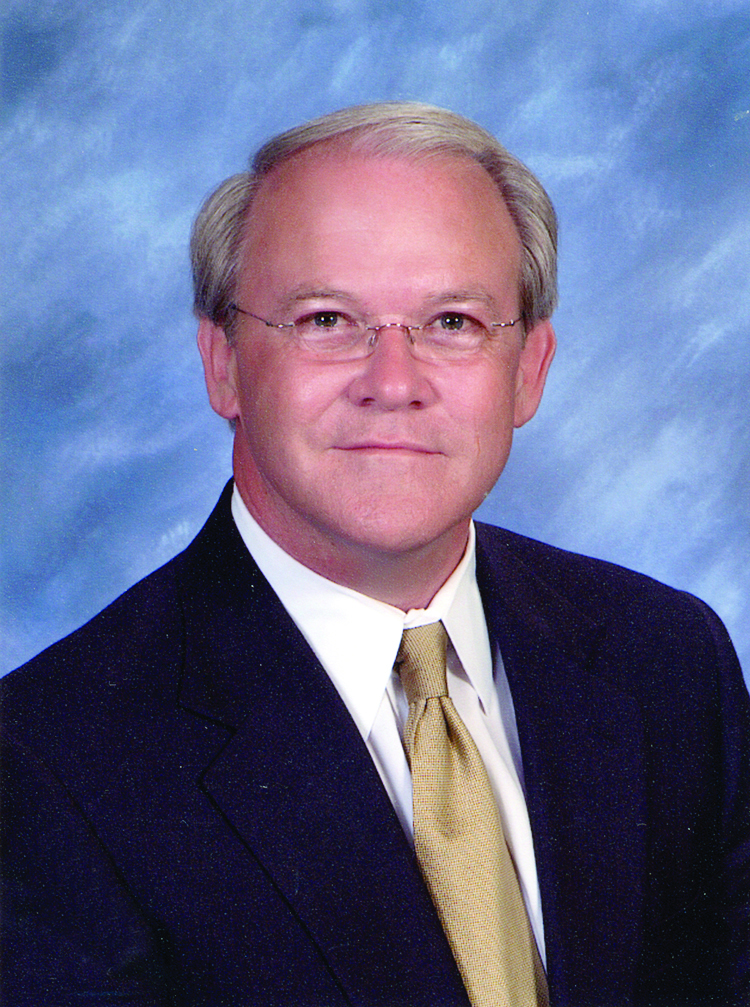
Frank Page
>>by Erin Roach BP Assistant Editor
NASHVILLE (BP)—The 1% Challenge for increased Cooperative Program giving has been a surprising success, Frank Page, president of the Southern Baptist Convention’s Executive Committee, said Feb. 18.
Page had asked the convention’s 45,000 churches to consider a 1 percent-of-budget increase in Cooperative Program giving, which would add $100 million to the funding stream for Southern Baptist missions and ministries.
“The 1% Challenge began almost two years ago and has received a great deal of positive attention. Honestly, more than I thought it would,” Page told EC members in Nashville. “I thought . . . it might have some traction until we got a more comprehensive strategy in place.”
But the challenge has caught on, Page said, and at least 15 percent of Southern Baptist churches either have adopted the challenge or are seriously considering it. “It’s making a difference,” he said.
Also in his report to trustees, Page previewed a sweeping initiative still in the planning stages: Great Commission Advance.
“We will present the bare bones of this at the Houston convention (in June), but it will be developed much, much more over the next year and then presented in fullness in 2014,” Page said.
Great Commission Advance, Page said, is an aggressive global vision—reaching the world for Christ—based on a strong home base, fueled by the Cooperative Program. The initiative will start in 2014 and go through 2020, Page said, and it will begin with a massive emphasis on stewardship.
Among the goals of Great Commission Advance are 7,000 international missionaries, 10,000 new churches in North America in the next 10 years and reduced seminary education costs for students. State conventions can add their own specific goals, Page said.
Also in his report, Page said an area he has worked hard on during the past year is ethnic relationships. Through the Hispanic Advisory Council and the African American Advisory Council, Page said, he has been working with ethnic brothers and sisters in Christ to encourage deeper involvement in the convention than ever before.
Soon Page expects to announce the members of an Asian Advisory Council.
“That is such an important group of ethnics within our culture,” he said.
“Of our 45,000 churches, almost one in four is ethnic in some fashion—almost 10,000,” Page noted. “Our leadership in all of our convention needs to reflect that ethnic diversity. Let’s work hard on that.”
Page said he will be working with David Dockery, president of Union University, on an Educational Summit where representatives from colleges, universities and seminaries will work specifically on “making education more accessible to our ethnic brothers and sisters.”
Another area of concern during the past year, Page said, has been working toward unity on Calvinism. The advisory council he formed expects to deliver a report to the convention at the annual meeting in Houston, he said.
On the Saturday before June’s SBC annual meeting in Houston, Page said, he’ll be in the “roughest, poorest” part of the city going door to door, sharing the Gospel as part of the yearly Crossover evangelism initiative. He challenged SBC leaders and others to join him.
Also in his report, Page mentioned two particular issues that call for increased prayer in the coming days: the anticipated U.S. Supreme Court decision on gay marriage and the Boy Scouts of America’s vote on whether to allow homosexual troop leaders and members. The Supreme Court’s decision, Page said, could “affect our entire culture.” He added, “We need to pray.” Regarding the Boy Scouts, “God’s people spoke up and spoke up loudly,” he said. “Continue to do that, please.”
At the close of the 2011-12 fiscal year, Page reported, revenues exceeded the Executive Committee budget by more than $384,000, expenses were under budget by $336,000, and an undesignated reserve fund reached more than $5 million.





